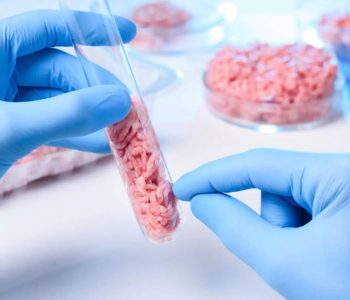Italy has pronounced itself against lab grown meats. In a recent statement Francesco Lollobrigida, Minister of Agrarian Policies, emphasized that “Italy says NO to synthetic food and meat.” This occured, after the approval of a new law that prohibits lab-grown meat production, sales, and imports.
This makes Italy the first country within the European Union to ban production, sales, and imports of laboratory meat.
The minister argued that it is a law “in defense of the health of citizens, of our productive model, of our quality, of our culture, simply of our food sovereignty.”
Additionally, the new law is:
“a courageous result of the Meloni government, a strong stance in favor of the many traditional producers, encircled by a few increasingly unscrupulous multinationals.”
On the other hand, the Italian Health Minister, Orazio Schillaci, said that the project about synthetic meat is a significant law since it is based on the caution principle because nowadays, there is no scientific research about the effects of artificial meat on human health.
Moreover, he emphasized protecting the citizens’ health and safeguarding the nation’s heritage and agri-food culture, which is based on the Mediterranean diet.
As mentioned above, the law bans the production and sale of synthetic food, including constituted, isolated, or produced from cell cultures or tissues derived from vertebrate animals, such as lab-grown meat.
The law establishes administrative fines for those that do not comply with it. The sanctions include penalty fees ranging from:
- A minimum of 10,000 euros to a maximum of 60,000 euros
- Up to 10% of the total annual turnover reached in the last year closed before the infringement verification when this amount is greater than 60,000 euros.
The infraction will also entail:
“the confiscation of the illicit product, the application of administrative sanctions prohibiting access to contributions, loans or subsidies or other disbursements of the same type, whatever their denomination, concession or disbursement by the State, by of others or by the European Union for the development of business activities, for a minimum period of one year and up to a maximum of three years, as well as the closure of the production plant, for the same period.”
Source: Cárnica
You may also like: “Lab-grown meats: How natural are they?”
